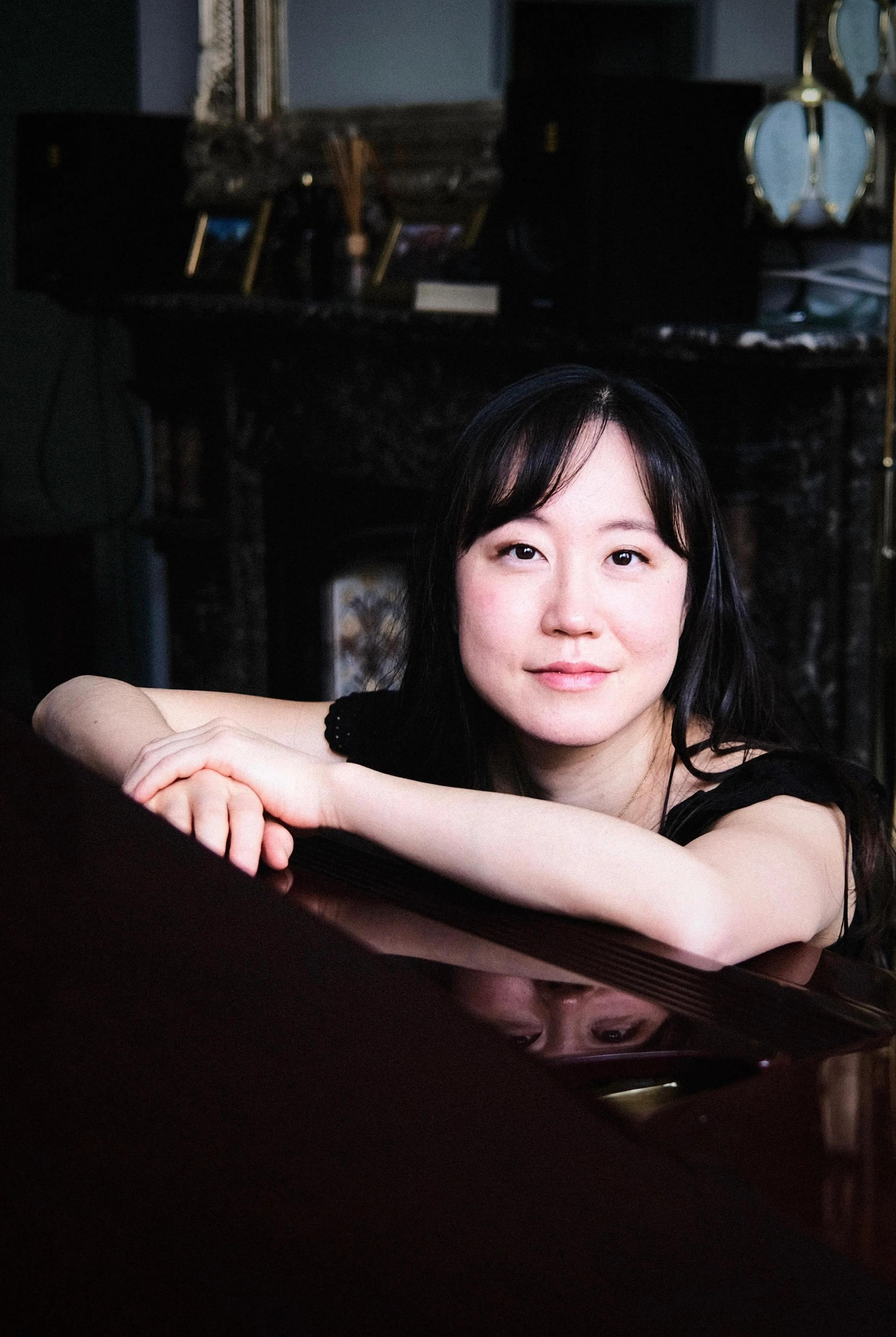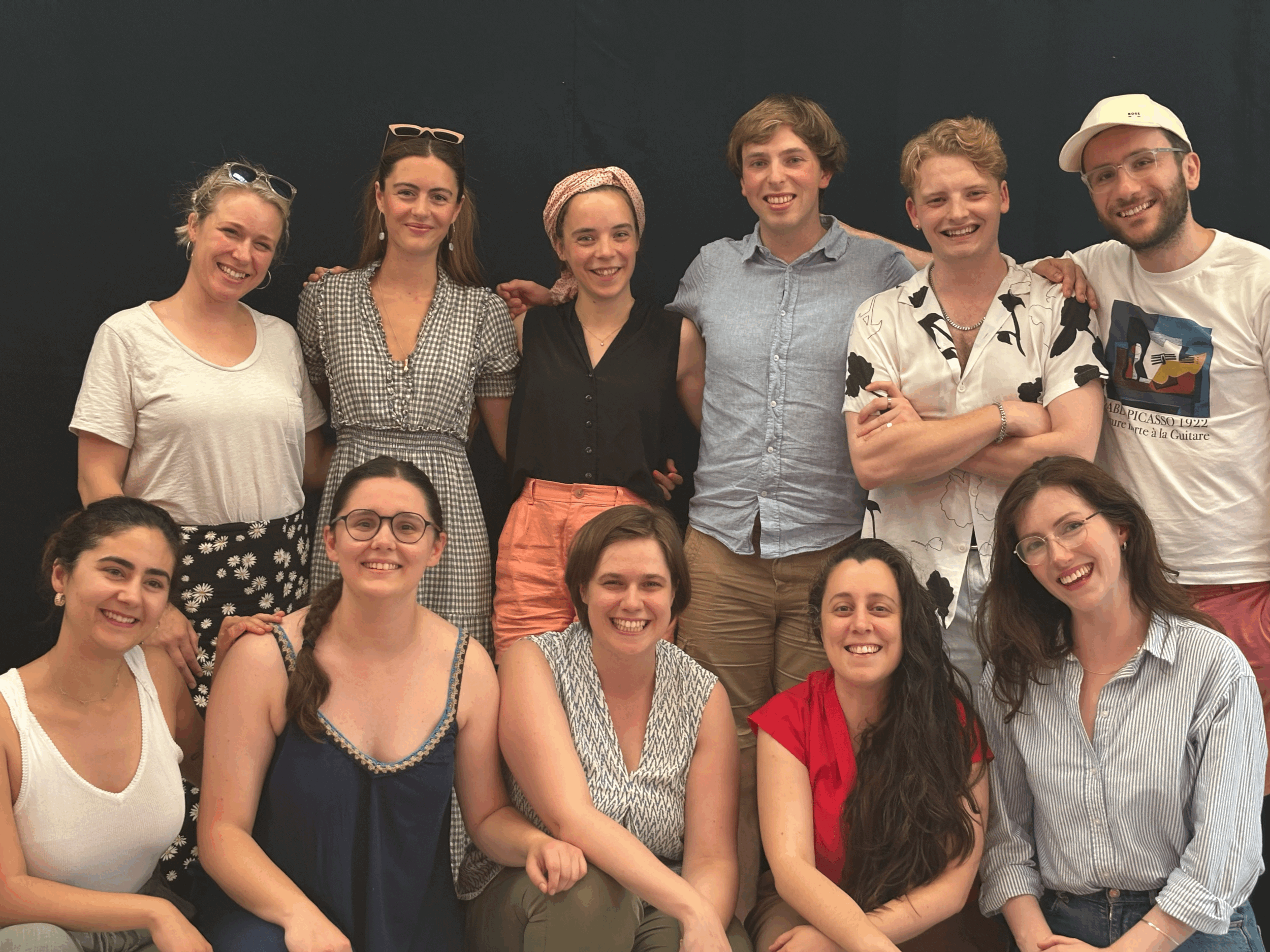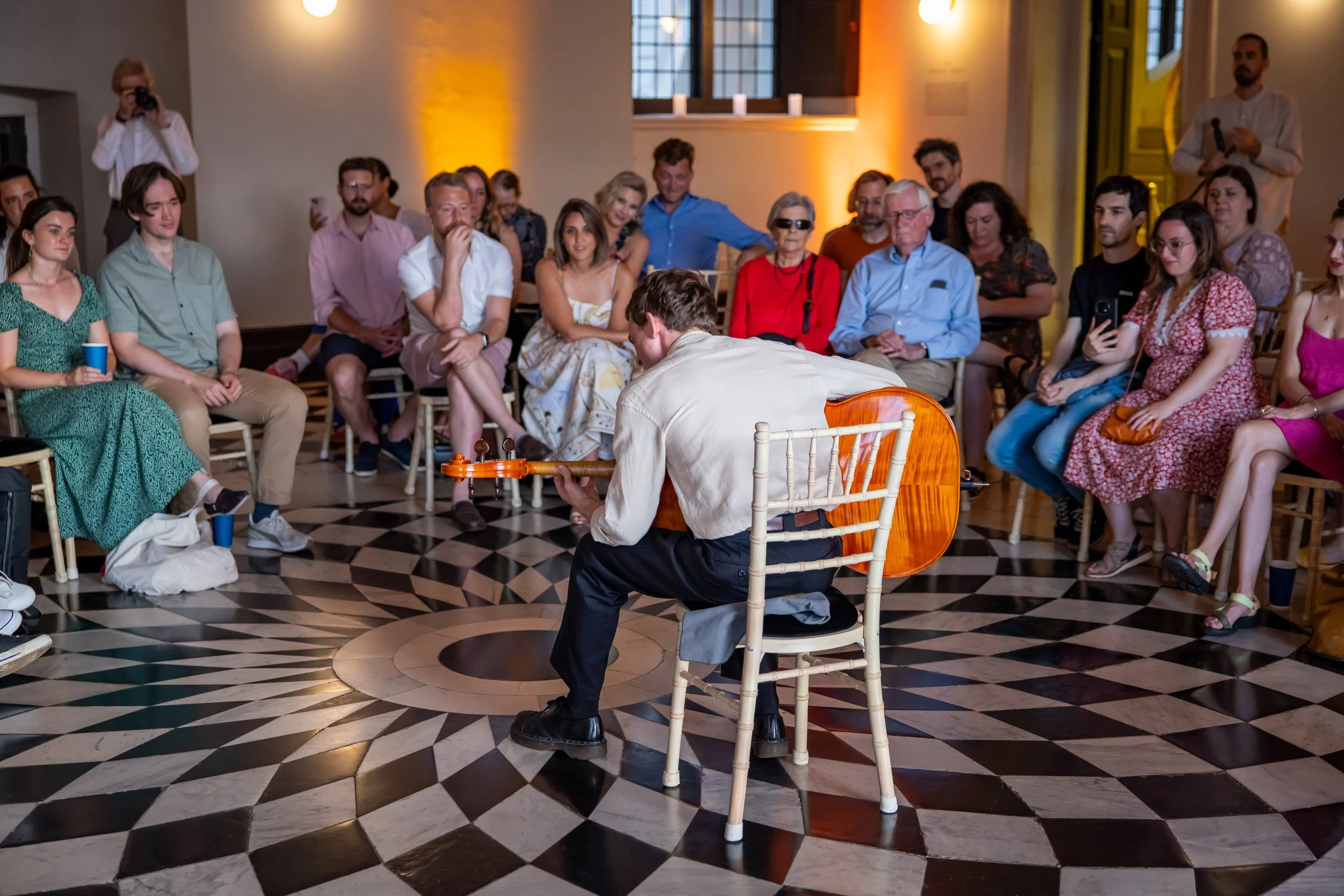5 Pieces That Changed My Life: Rieko Makita, pianist
Photo by Blue Galleriie
Hey readers!
For our next 5 Pieces That Changed My Life blog, I had a chat with DEBUT Horizon Artist - pianist and composer Rieko Makita 🎶
Rieko Makita is an award-winning Japanese-Australian pianist and composer based in London. Described by The Arts Desk as a musician of “opalescent subtlety… and vibrant colours,” Rieko has performed internationally at venues including the Sydney Opera House, and made her sold-out solo debut at the Royal Albert Hall in February 2024. Her performance have been featured live on BBC Radio 3.
Rieko holds a Master of Performance with Distinction and an Artist Diploma in Performance from the Royal College of Music. She was the 2023–24 Constant & Kit Lambert Junior Fellow, and awarded the prestigious RCM Accelerate Award upon graduation in recognition of her creative vision. Rieko was also the piano fellow for the Philharmonia Orchestra Instrumental Fellowship Programme (2021–22) and is a regular guest artist with DEBUT.
1. Liebestraum No. 3 in A-flat Major - Franz Liszt
🎧 Watch my performance of Liebestraum → YouTube
(Recommended pianists to listen to: Arthur Rubinstein, Claudio Arrau, Lang Lang)
Franz Liszt’s Liebestraum No. 3 (“Dream of Love”) is one of the most beloved romantic piano works ever written - a dazzling blend of lyrical beauty and virtuosic passion. Its soaring melody and shimmering arpeggios capture Liszt at his most poetic and expressive.
Why this piece captured my heart:
This piece is the reason I decided to become a pianist. I loved it from a young age, and I performed it in the main hall of the Sydney Opera House when I was just 16, in front of more than a thousand people.
I can still remember that feeling of being on stage, as if the world stopped and it was just the piano and me in that moment. You could hear a pin drop - it was so quiet. It’s a moment in time I’ll never forget. I felt completely alive, and to this day, I’m chasing that feeling every time I sit down to play.
2. Eden - Hania Rani
(Listen here → YouTube link)
Hania Rani’s Eden is a luminous, introspective piano piece that feels both fragile and expansive - a meditation on stillness, growth, and belonging.
A classically trained Polish pianist and composer, Rani is known for her ability to blur the boundaries between classical, ambient, and contemporary music. Her work invites listeners into an intimate world of reflection, where every note feels purposeful and personal. Eden embodies her signature balance of simplicity and emotional depth - music that speaks softly, yet stays with you long after it ends.
Why this piece captured my heart:
I discovered Hania Rani’s music about four years ago, soon after moving to London. Her entire album felt like a feast for both the mind and the ears - it helped me process the emotions of leaving home (Australia) and beginning a new chapter halfway across the world.
Moving across the world really breaks down barriers you didn’t even know existed. Her music was my companion through that transition.
I deeply related to Hania’s story - classically trained yet fearlessly composing her own work. Until then, I hadn’t really considered that for myself. She inspired me to start writing music. Hania is constantly evolving musically, and continues to be a source of inspiration today.
3. A Flower is not a Flower - Ryuichi Sakamoto
🎧 Listen to my orchestration of “A Flower is not a Flower” → YouTube
Ryuichi Sakamoto (1952–2023) was a pioneering Japanese composer, pianist, and producer whose music transcended genres and generations. From his early days with the influential electronic group Yellow Magic Orchestra to his award-winning film scores like The Last Emperor and The Revenant, Sakamoto continually redefined what contemporary music could be. His work blends classical sensitivity with electronic innovation, exploring beauty, impermanence, and the human connection to nature - themes that continue to inspire artists around the world.
Why this piece captured my heart:
Growing up, I mostly played music by Western composers and hadn’t explored much piano music by Japanese composers. I’d always admired Ryuichi Sakamoto, but I truly discovered the breadth of his work when I began my own journey as a composer-pianist and started studying the greats who came before me. Sharing a Japanese background with him made his music feel especially resonant.
During my fellowship at the Royal College of Music, I curated a concert dedicated to Japanese composers and orchestrated Sakamoto’s A Flower is not a Flower. I learned so much from the process, with the invaluable help of a friend who guided me through the orchestration. I’m deeply grateful to all the musicians who made that performance possible.
4. Miroirs - Maurice Ravel
🎧 Listen to my recording of “Une Barque sur l’océan” → Spotify
(Recommended pianists: Steven Osborne, Jean-Yves Thibaudet)
Maurice Ravel (1875–1937) was a French composer and pianist celebrated for his shimmering impressionistic style and exquisite craftsmanship. Known for works such as Boléro, Daphnis et Chloé, and Miroirs, Ravel brought colour, texture, and precision to every note he wrote. His music continues to inspire pianists and composers to explore the infinite palette of sound the piano can offer.
Ravel’s Miroirs (“Mirrors”) reflects the inner landscapes of the imagination - each movement a vivid sonic painting shimmering with colour and light.
Why this piece captured my heart:
Ravel has always had a special place in my heart. His music transports you to another world. Miroirs is so picturesque and colourful - it still blows my mind how he created such complex yet simple piano textures and figurations. His music is intricate yet refined in structure and harmony.
His work inspires me to experiment with the different sounds and colours you can create on the piano through touch, voicing, and timing. It’s also fascinating to hear how he orchestrated some of these pieces, revealing another dimension of his music.
5. Luciférine - Ichiko Aoba
(Listen here → YouTube link)
Ichiko Aoba is a Japanese singer-songwriter and guitarist known for her ethereal, minimalist compositions that blend folk, classical, and dreamlike textures. Her music often draws on nature, Japanese folklore, and storytelling, creating intimate soundscapes that feel both personal and timeless. Aoba’s work invites listeners into a world of calm reflection, where every note is carefully placed and every silence speaks as loudly as the music itself.
Why this piece captured my heart:
Lately, I’ve been asking myself: what kind of music do I want to create? What message do I want to communicate through my performances?
Seeing Ichiko Aoba live with the 12 Ensemble at the Barbican this year was a transformative experience. Her performance was enchanting, drawing me into a space of deep reflection. Her music feels profoundly healing, and I am deeply inspired by her approach - the way she weaves her connection to nature, Japanese culture, and fairytales into her music, her unexpected harmonies, and the serene presence she embodies on stage. Luciférine is intimate and comforting, yet strikingly inventive, revealing how simplicity and creativity can coexist beautifully.
I’m striving to create music that brings a similar sense of peace and emotional resonance, while exploring the piano’s full expressive potential - and to let my music reflect both vulnerability and imagination.




Discover the music that has shaped guitarist Zoe Barnett’s journey. From beloved classical pieces to innovative contemporary works, explore the repertoire behind Zoe’s distinctive guitar artistry.